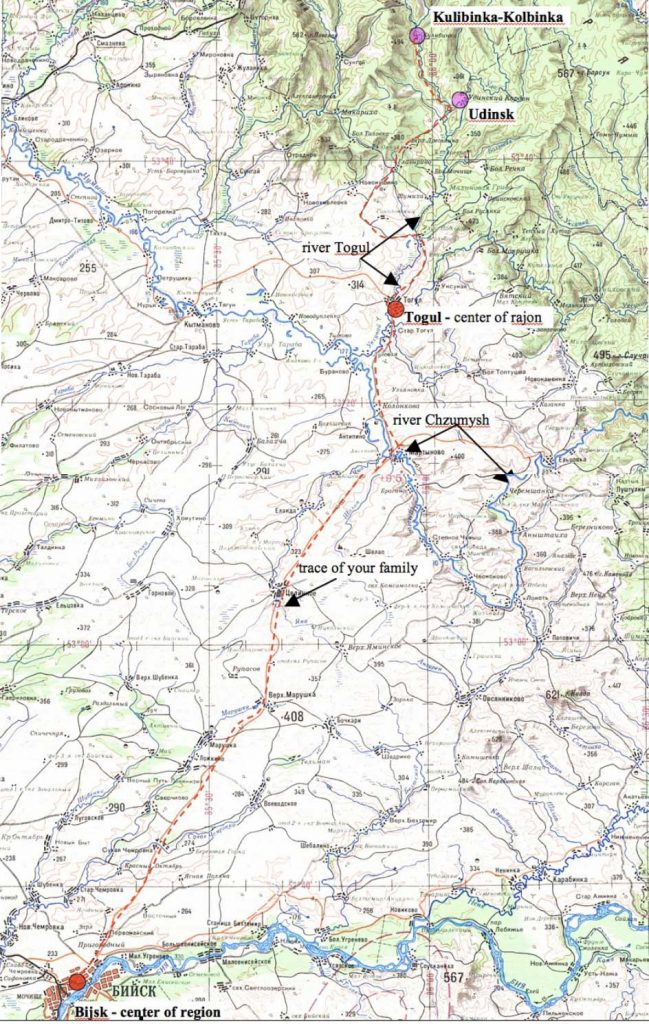At Bijsk, on July 16th 1940, they transfered to open lorries and traveled several days by road to their final destination, a forestry labour camp called Paperszhna Nizhna near Kolibionka 170 kilometers from Bijsk.
Appalled by their privations and treatment my Grandfathers diary entries were caustic, anti-Soviet and preoccupied with hunger, thirst and lice. From the train, he observed the passing landscape looking for clues of their whereabouts and possible destination and commented on the deprived living conditions he observed.
In the lorries from Bijsk they were no longer enclosed. On the road journey they slept outside, cooked on fires and engaged with local officials. This lightened the tone of some his entries, the most striking being his observations of the beauty of the River Chzumysh.
His entries end as they arrive at the labour camp in Paperezhna Nizhna.
In Bijsk, on July 9th 2013, we rested, organised transport for the road trip and made contact with the local archives to find the precise locations of the camps which had long ago been abandoned and overgrown by the voracious forest or Taiga They gave us general directions but could not find the specific location of Paperezhna Nizhna and warned of us of the danger of entering the forest at this time of year.
We simply followed the directions in the diary by road until it ended, in a small village, NovoIoshino. There we made contact with the local people who, moved by our story helped us on our mission. They gave us a place to stay, and introduced us to a trapper who remembered the location of camps. He produced ancient scraps of maps and offered to take us through the forest to the very place that Zygmunt and Jan had been imprisoned at another less dangerous time of year.


